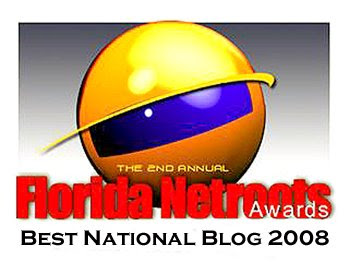the Sins of the Fathers
Jumpin' slick was my ruin
'Cause I found out all I was doin'
Was makin' it easy for the clean up woman
To get my man's love, aww, yeah
--The Clean Up Woman,
Betty Wright
I the Lord your God am a jealous God,
visiting the iniquity of the fathers on the children
to the third and the fourth generation
of those who hate me
--Exodus 20:5
When we do for those in need
what they have the capacity to do for themselves,
we disempower them
--Toxic Charity,
Robert Lupton
'Cause I found out all I was doin'
Was makin' it easy for the clean up woman
To get my man's love, aww, yeah
--The Clean Up Woman,
Betty Wright
I the Lord your God am a jealous God,
visiting the iniquity of the fathers on the children
to the third and the fourth generation
of those who hate me
--Exodus 20:5
When we do for those in need
what they have the capacity to do for themselves,
we disempower them
--Toxic Charity,
Robert Lupton
____________________
This year (2017) marks the 100th anniversary of the entrance if the United States as a belligerent into World War I, The War to End All Wars (not). It is also being marketed as the 50th anniversary of the Vietnam War, a nice halfway point. (And if Ken Burns documents it as such, it must be so.)
How the assassination of a piss ant like Archduke Ferdinand of the bizarre griffon of the Austro-Hungarian empire by a crazed anarchist from Bosnian Serb constituted a necessary military entrance by the U.S. is still contentious. Certainly, the idea of pacification by United States President Wilson left a poor taste in the mouth of a young nation eager to prove its solidarity and efficacy. So men like Wilson were milquetoasts in a world of real men with real problems.
World War II followed in short order. Why was it necessary for a nation with 5% of the world's population to save the other 95%? The arguments are legion, but it is a question worthy of consideration independent of the boilerplate that this was a good and necessary war.
We have been conditioned to believe our participation in both World Wars was necessary, but we usually do not discuss alternative actions or legitimacy issues. We bypass discussing how we can stop the next war or head it off at the pass, in favor of debating techniques for winning it. National security issues are not discussed in any meaningful way.
After WW II -- the Good War -- came the "Forgotten War", the police action of Korea. Legitimacy issues fell by the wayside as each new, unwinnable action took their place in the queue of less-than-Good-Wars..
Fifty years hence, we are still unsure of why the Vietnam War was fought.
Vietnam Syndrome came to embody and signify the wary shame felt by a nation which had lost its moral compass after the cultural upheaval of the 1960's.
Gulf War I was said by then-President George H.W. Bush to have "erased" the black mark that was Vietnam, yet no one stated what it was we were attempting to achieve in either war, or what they contributed to our national life. Even the deaths of 58,000 servicemen could be accepted if they had been killed for anything meaningful.
Vietnam has been eclipsed by the current longest wars fought by America, yet still we do not know what it is we are fighting for, or what we hope to achieve by our entrance into and persistent presence in the hostilities.
Vietnam and the Wars on Terror are intertwined in many ways. In both, the enemy is nebulous. In Vietnam, the Viet Cong were a confederated "front" of organizations with hazy and ambiguous goals, much like any of the actors in the Phony Wars on Terror (PWOT ©).
The Middle East wars were sold as the "Domino Effect" of Communism fears in reverse: with just a wink and a nod, the dominoes would stand up and form a great democracy. But not even the frailest of democracies has emerged from any of the recent U.S. military misadventures.
Our hubris is embarrassing. Many thought that once the abundance of riches possible in a capitalistic democracy was presented, the erstwhile colonized populations would latch on like a greyhound to a rabbit. Perhaps Christianity is found wanting against Islam, or is it just that Christians themselves are in the dark?
Nonetheless, this brooding will not dampen the celebrations of the 100-year cycle, for celebrate we must. That Yankee can-do spirit has brought us through many dark nights, and led to many shining moments. Sadly, our willingness also can and has been exploited to bring us into many questionable entanglements.
Our current aggressions have no meaningful chance of eliminating terrorism nor of producing anything resembling liberal democratic institutions.
For your pleasure, a Zen koan: we cannot explain what Vietnam was about, but we are doing the same things in the Middle East, today.
Why are we so addicted to war? Perhaps it is as Chris Hedges wrote, "war is a force that gives us meaning".
The U.S. finds itself often cleaning up the messes left behind by colonial overlords. Only the problem is, there is no way to leave them spic and span. Invariably the U.S. military rucks up and leaves the rubble and turmoil behind with nothing better; often something worse.
It was never ours to begin with, and we cannot teach them to tidy up in a pacific way. Ours is a toxic charity.
Labels: colonialism, post colonialism, the Long Wars, the Phony Wars on Terror, the Wars on terror, United States wars, wars












1 Comments:
Although his book in question quoting just that phrase is most famous, Chris Hedges himself would nail the impetus of WWI and WWII as the designs and greedy follies of American bankers and the Old European Imperial Powers that originally created her as he does in this two part talk.
https://www.youtube.com/watch?v=rGQoCS7ty1g
https://www.youtube.com/watch?v=-nV9OtEdQjU
Of course Major General Smedley Butler, America's last honorable Marine flag officer was more specific in his many speeches and pamphlets including War Is a Racket.
It still is, unfortunately, prescient today.
https://www.ratical.org/ratville/CAH/warisaracket.html
Post a Comment
<< Home